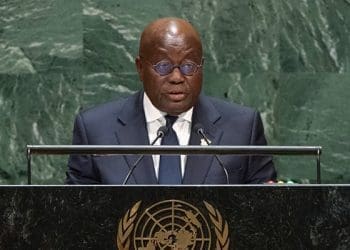The government of Tanzania has blocked access to X over pornographic and sexually explicit content, which violates the country’s laws, cultural norms, and digital ethics regulations, Information Minister Jerry Silaa, has said.
Silaa confirmed during a televised interview that X has been banned for promoting content that conflicts with Tanzanian moral standards, including same-sex adult material, after the platform declared it would no longer remove “consensually produced adult content.”
Social media ban in Tanzania amid rising political tensions
The decision to restrict X comes amid increased political tension ahead of Tanzania’s 2025 presidential and parliamentary elections. Users began noticing restricted access to the platform two weeks ago following a cyberattack on the Tanzanian police X account, which posted false information, including a fake announcement of the president’s death, along with explicit images.
Internet watchdog NetBlocks confirmed on May 20 that X had been effectively blocked in Tanzania, linking it to security concerns over the police account hack.
Additionally, the YouTube account of the Tanzania Revenue Authority was also hacked, broadcasting adult content.
Accusations of digital repression and human rights violations
The Legal and Human Rights Centre (LHRC) condemned the government’s actions, describing them as part of a “troubling pattern of digital repression” in the run-up to the elections.
The group noted this mirrored similar censorship of social media platforms before the 2020 elections. The organisation emphasised the “serious concerns about freedom of expression and open digital spaces in Tanzania.”
According to LHRC, other platforms like Clubhouse and Telegram are also inaccessible in Tanzania without a VPN (Virtual Private Network), further limiting public communication and dissent.
Despite the restrictions, LHRC criticised the Tanzanian government for continuing to use X for official communications, calling the approach inconsistent and damaging to government credibility.
Crackdown on East African activists sparks outrage
The blocking of social media platforms also coincides with a controversial crackdown on East African human rights defenders. Activists from Kenya and Uganda who travelled to Tanzania in solidarity with opposition leader Tundu Lissu were arrested, deported, or detained amid charges of interference in domestic politics.
Lissu, a long-time government critic, is currently facing treason charges after threatening to lead an election boycott campaign unless reforms ensure a free and fair election process.
Kenyan ex-Justice Minister Martha Karua was deported from Dar es Salaam International Airport, while activist Boniface Mwangi and Ugandan journalist Agather Atuhaire were allegedly detained and subjected to abuse, including sexual assault and torture, according to public statements and BBC reports.
While Tanzanian police have denied the allegations, regional human rights organisations and Amnesty International have called for independent investigations into the claims of torture and abuse.
President Samia’s stance on internet control and political freedom
President Samia Suluhu Hassan, who took office after the 2020 death of former President John Magufuli, initially earned praise for loosening political restrictions. However, critics argue her recent actions show a return to authoritarianism as she prepares to run for re-election under the ruling party.
President Samia has defended her administration’s actions, stating that Tanzania will not tolerate “foreign interference” or any attempts to destabilise the nation through online platforms or activist campaigns.
The Tanzanian government maintains that the upcoming 2025 elections will be free, fair, and democratic, despite increasing concerns from international and local observers.












